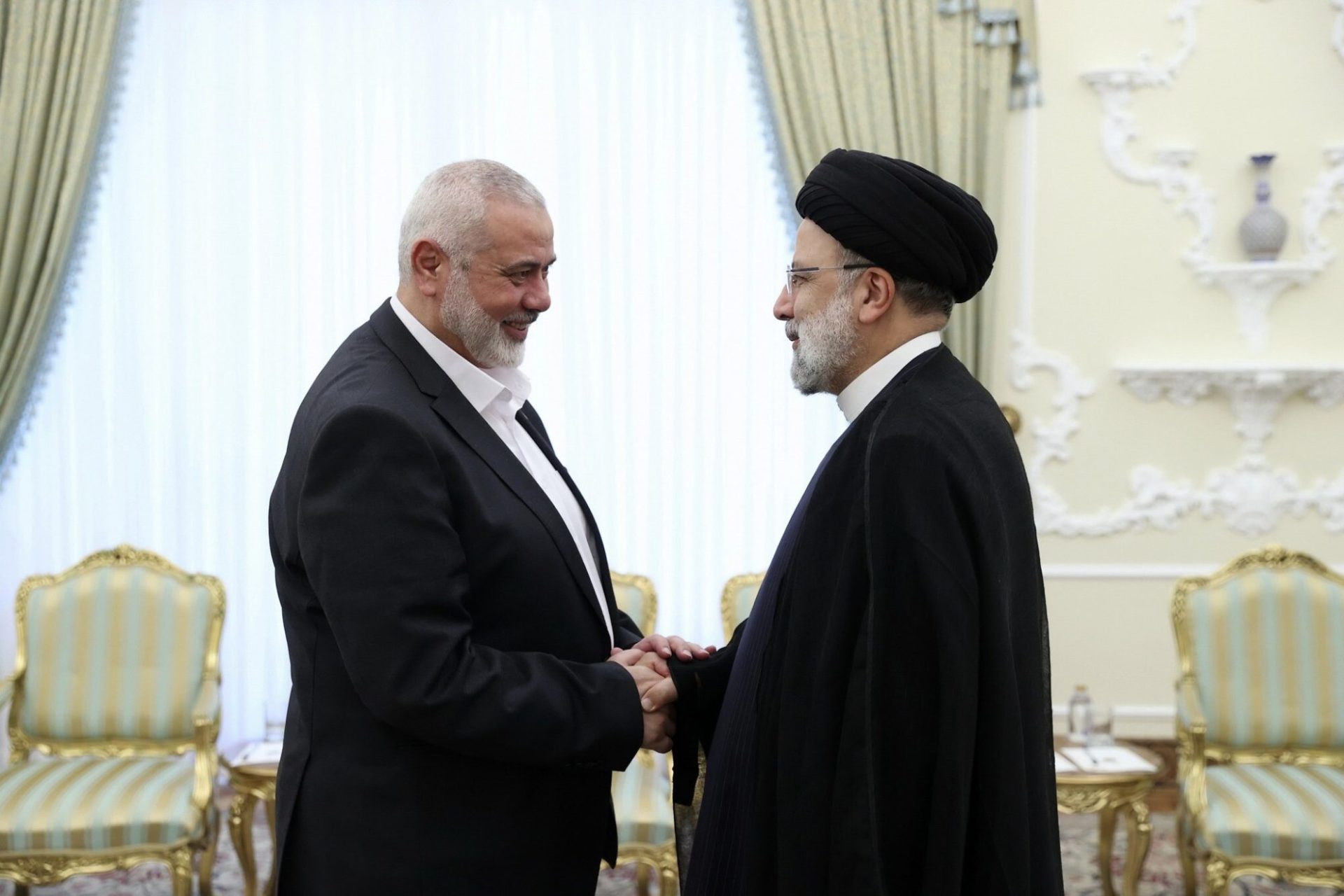Watan-The political office of the Islamic Resistance Movement “Hamas” has become a subject of controversy recently, amid several reports talking about pressures to relocate the office from the Qatari capital, Doha.
In line with this, a debate arose following a meeting between the head of Hamas’s political bureau, Ismail Haniyeh, and the Iranian Supreme Leader Ali Khamenei in the Iranian capital, Tehran.
Qatari writer Abdullah Al-Adhba shared a picture of this meeting, addressing the controversy surrounding the reports of Hamas’s office relocation.
Al-Adhba said: “The Iranian Supreme Leader Ali Khamenei receives Ismail Haniyeh, the head of Hamas’s political bureau, in the honorable Iran… What would the Zionists and their followers feel if Hamas’s political office moved abroad to Sana’a, the capital of the great Arab and Muslim nation of Yemen, leaving Qatar? A very important question, brothers.”
Hamas established a political office in Doha in 2012, where senior Hamas leaders reside permanently. As a result, Qatar plays a crucial role in the region between Hamas and other countries.
المرشد الإيراني علي خامنئي يستقبل في إيران الشريفة 🇮🇷إسماعيل هنية رئيس المكتب السياسي لحركة حماس.
ما شعور الصهاينة وأتباعهم🇮🇱 إن انتقل المكتب السياسي لحماس في الخارج إلى صنعاء العرب والمسلمين في اليمن الكبير 🇾🇪 وتركوا قطر 🇶🇦؟
سؤال مهم جدا يا إخوان.. pic.twitter.com/liUwLl3Exk— عبدالله بن حمد العذبة (@A_AlAthbah) March 26, 2024
Reports of pressure on Qatar to expel Hamas There has been significant controversy recently over information suggesting pressure on Qatar to relocate Hamas’s political office from the capital, Doha.
Days ago, two American officials stated that US Secretary of State Antony Blinken sent a stern message to Qatar earlier this month, informing Hamas that it must implement the prisoner exchange agreement and cease-fire to halt the fighting in Gaza or risk being expelled from Doha, where significant Hamas leadership is located, according to claims by CNN.
Sources from CNN alleged that Blinken delivered the message to Qatari Prime Minister and Foreign Minister Sheikh Mohammed bin Abdulrahman Al Thani during a meeting held in Washington on March 5.
American officials claimed that Qatar, which has been a significant partner for the United States in efforts to reach a ceasefire agreement, understood the message and received it without significant opposition.


